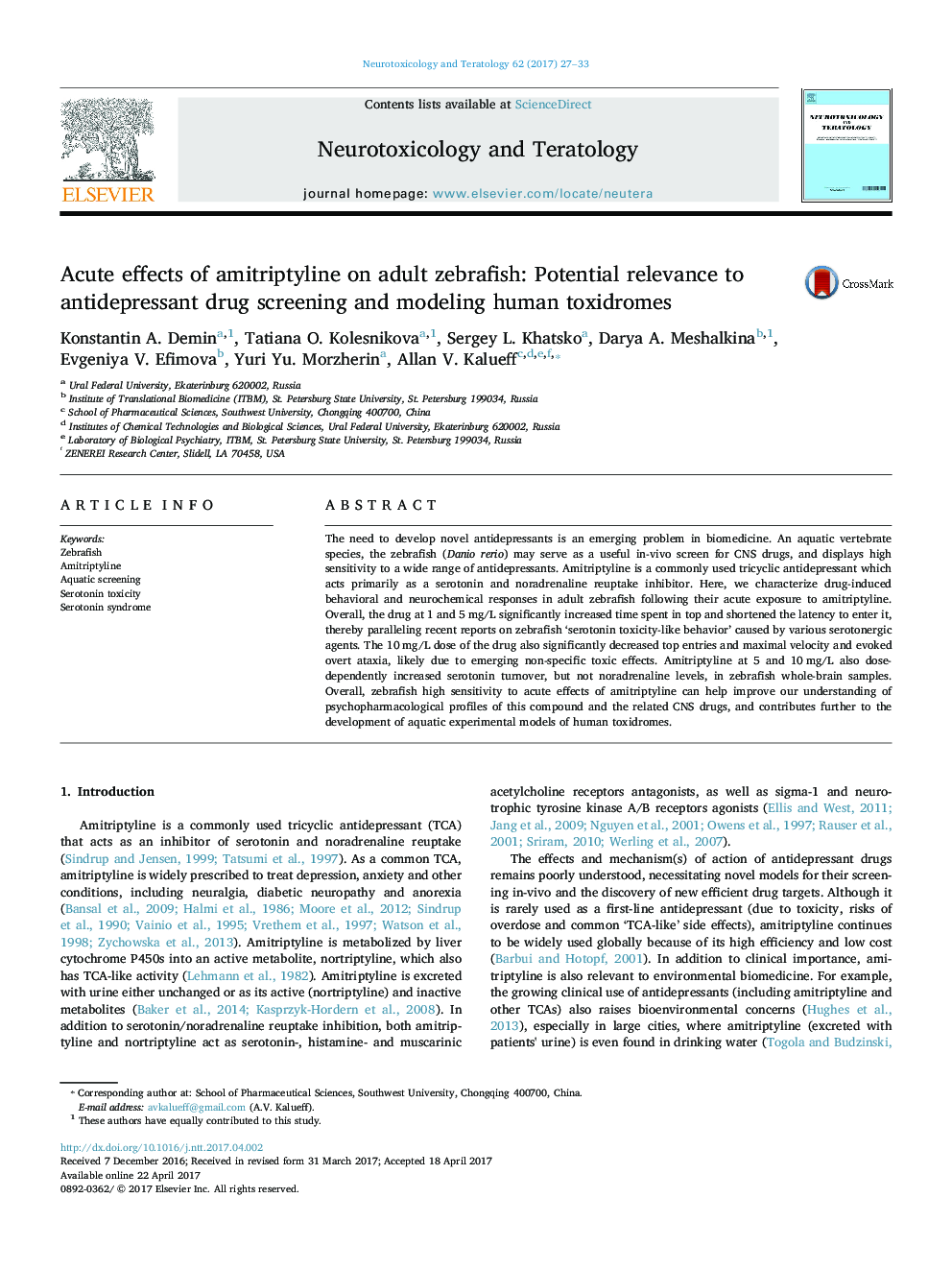| Article ID | Journal | Published Year | Pages | File Type |
|---|---|---|---|---|
| 5560978 | Neurotoxicology and Teratology | 2017 | 7 Pages |
â¢Zebrafish may serve as a useful in-vivo screen for antidepressants, including tricyclics.â¢Here, we characterize zebrafish behavioral responses to acute amitriptyline exposure.â¢The drug increased time spent in top, paralleling zebrafish 'serotonin toxicity-like behavior'.â¢High dose also significantly decreased velocity and evoked ataxia, due to emerging toxicity.
The need to develop novel antidepressants is an emerging problem in biomedicine. An aquatic vertebrate species, the zebrafish (Danio rerio) may serve as a useful in-vivo screen for CNS drugs, and displays high sensitivity to a wide range of antidepressants. Amitriptyline is a commonly used tricyclic antidepressant which acts primarily as a serotonin and noradrenaline reuptake inhibitor. Here, we characterize drug-induced behavioral and neurochemical responses in adult zebrafish following their acute exposure to amitriptyline. Overall, the drug at 1 and 5Â mg/L significantly increased time spent in top and shortened the latency to enter it, thereby paralleling recent reports on zebrafish 'serotonin toxicity-like behavior' caused by various serotonergic agents. The 10Â mg/L dose of the drug also significantly decreased top entries and maximal velocity and evoked overt ataxia, likely due to emerging non-specific toxic effects. Amitriptyline at 5 and 10Â mg/L also dose-dependently increased serotonin turnover, but not noradrenaline levels, in zebrafish whole-brain samples. Overall, zebrafish high sensitivity to acute effects of amitriptyline can help improve our understanding of psychopharmacological profiles of this compound and the related CNS drugs, and contributes further to the development of aquatic experimental models of human toxidromes.
